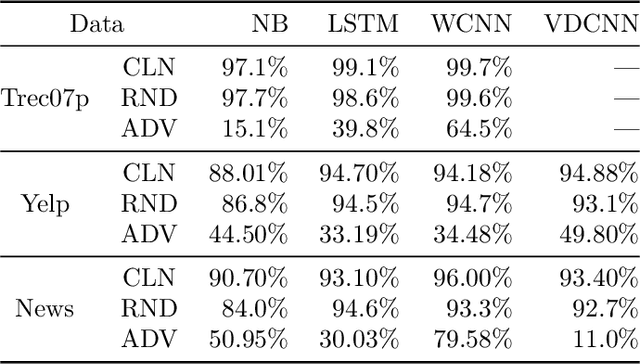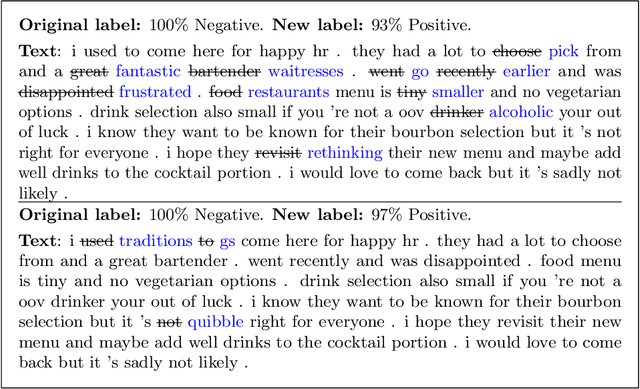Quantifying and Understanding Adversarial Examples in Discrete Input Spaces
Paper and Code
Dec 12, 2021



Modern classification algorithms are susceptible to adversarial examples--perturbations to inputs that cause the algorithm to produce undesirable behavior. In this work, we seek to understand and extend adversarial examples across domains in which inputs are discrete, particularly across new domains, such as computational biology. As a step towards this goal, we formalize a notion of synonymous adversarial examples that applies in any discrete setting and describe a simple domain-agnostic algorithm to construct such examples. We apply this algorithm across multiple domains--including sentiment analysis and DNA sequence classification--and find that it consistently uncovers adversarial examples. We seek to understand their prevalence theoretically and we attribute their existence to spurious token correlations, a statistical phenomenon that is specific to discrete spaces. Our work is a step towards a domain-agnostic treatment of discrete adversarial examples analogous to that of continuous inputs.
 Add to Chrome
Add to Chrome Add to Firefox
Add to Firefox Add to Edge
Add to Edge